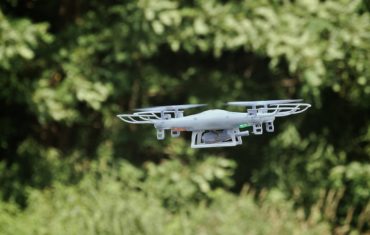Broadband Coverage in the Delta (October 2020)
Beginning in 2014, the Delta Protection Commission (Commission) undertook the Delta Community Action Planning (CAP) project to increase civic vitality and preserve the values and character of historic Delta towns. Through the CAP process, broadband infrastructure was identified as an essential utility needed to serve residents, businesses (including agricultural operations), and visitors. In 2019, Valley Vision completed Connecting the Delta: Broadband Action Plan, a report prepared for the Commission to inform local governments and all those affected by the lack of high-speed internet service of recommended actions to improve broadband adoption and support.
According to the report, within the five legacy communities identified in the CAP project (Clarksburg, Courtland, Hood, Isleton, and Walnut Grove), approximately one-third of households did not have Internet subscriptions at the time of report preparation in 2019. Households and businesses within the legacy communities have very limited provider options. Additionally, 17% of households within Delta communities do not have access to a computing device (desktop, laptop, smartphone, or tablet). Access, quality, reliability, and cost all factor into this circumstance. The Delta is faced with many barriers and has several unserved and underserved areas lacking broadband service, compared to the surrounding greater metropolitan areas of Sacramento, Stockton-Tracy, and the San Francisco Bay Area.
At broadband workshops held in the Delta during 2018 and 2019, community members voiced broadband quality and access frustrations, equity discrepancies, and educational and safety concerns. Additionally, while not exclusive to broadband, it must be noted that each community also identified challenges with mobile wireless (i.e. cell phones) and lack of signal availability.
The 2019 action plan offered three recommendations for achieving improved broadband: (1) organize for action; (2) leverage existing opportunities; and (3) pursue and secure funding. As a preliminary step to organizing for action, the Commission is partnering with Valley Vision and the Connected Capital Area Broadband Consortium (CCABC) to assess the broadband coverage in the five legacy communities and an expanded area including Bethel Island, the Delta Loop, Freeport, Rio Vista, and Terminous.
The following report and maps will be used in three ways:
- To provide local governing bodies, committees, and councils the coverage profiles that broadband service providers have reported to the CPUC,
- To kick off a campaign to engage residents of these Delta communities to test and register their actual residential service download and upload speeds for comparison with the reported available speeds, and
- After reviewing testing results, identify areas where service most needs improvement, and work with the community leaders, appropriate broadband coalitions, Internet service providers and the CPUC to leverage existing opportunities for service improvement and seek funding support.


